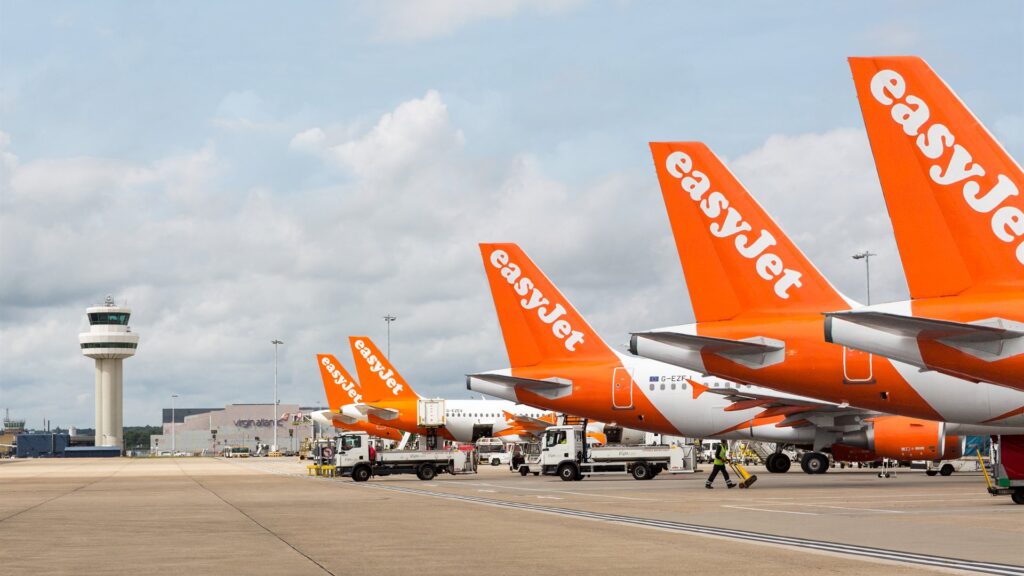What would you think if flight delays became a thing of the past? These days, flight disruptions are so commonplace that most travellers simply factor these irritations into their travel plans. The good news is that positive changes are on the horizon that could lead to an overall better airline experience for passengers.
The impact of flight delays
More than just an annoyance, flight delays can result in a cascade of flight disruptions for airlines and ruined plans for travellers. One delay can cause a passenger to miss a connecting flight or lead to extended wait times that, for some, could mean missing important meetings, losing money on holiday plans, or missing family events like a wedding.
How it affects airlines
Airlines like easyJet are faced with spending untold amounts of money on compensation for delayed flights thanks to UK 261 regulations that protect air passenger rights. Under the rules of these regulations, passengers can claim up to £520 (€600) in easyJet compensation for delayed flights of 3 or more hours that can be attributed to the airline. Not only that, but passengers are also entitled to care and assistance if their delay is longer than two hours. So, if a flight is delayed until the following day, airlines like easyJet could be on the hook for hotel accommodation as well.
Changes on the horizon
While flight delays might seem like an unavoidable part of air travel, new technology could be shaping the frequency and length of these kinds of disruptions. In January, easyJet became the first airline to employ innovative satellite technology to help make flight paths more efficient. This could mean fewer delays and fewer emissions, making this development a win-win for passengers and the environment alike. It could also help airlines save money by spending less on compensation to passengers affected by delays.
Understanding the technology
Thanks to a collaboration between Viasat and the European Space Agency, the new technology completely changes how air traffic control communicates with pilots. The system is called Iris and allows for a faster and more reliable way to create more efficient flight routes. Until now, pilots and air traffic controllers had to depend on radio frequencies to communicate – a reliable but less flexible method.
With more direct flight routes, aircraft will use less fuel, have fewer emissions, and get to their destination faster.
EasyJet’s commitment to tech advancements
So far, easyJet has only one aircraft using Iris on a route from London Southend to Alicante and another flying from Birmingham to Amsterdam, but they plan to add the technology to 10 more aircraft in the months ahead. As a result, passengers might notice fewer delayed flights.
Beyond flight disruptions, the new technology will help the carrier contribute to the Single European Skies effort that hopes to improve airspace management. It will also help easyJet reach its lofty environmental goals. They announced a carbon reduction goal in 2022 stating they hoped to improve carbon emissions by 35% by 2035. The airline also hopes to reach net-zero carbon emissions by 2050.
What to do about flight delays
Until this satellite technology is adopted by more airlines, passengers will have to contend with flight delays. There are, however, some steps you can take to ease the stress of delayed flights that will help you get to where you’re going, make the most of the time, and even get compensation from the airline.
Take advantage of existing technology
Download the airline’s app and opt in for notifications. This will help you plan your journey before you get to the airport and make the most of the time if you’re already there. So instead of looking for the information boards, you can simply check your phone for updates about your flight.
Be prepared
If you plan to check a bag, be sure to bring some toiletries and a change of clothes as well as chargers and some snacks. If you have a short delay, you might not be able to get meal vouchers, so the snacks will keep you from spending a small fortune at the airport. Plus, if you plan to snooze or explore the airport, you’ll feel better wearing layers and comfortable shoes.
Ask questions & take notes
One of the smartest things you can do when you find out your flight is delayed, is to ask questions. Ask the gate agents why the flight was delayed and keep track of their response. If you plan to seek compensation, this information will come in handy for your claim. If you have a longer delay, ask the airline for meal vouchers. If they don’t give them to you, be sure to keep all your receipts so you can submit them to the airline or to your travel insurance for reimbursement.
Learn about your air passenger rights
As mentioned above, passengers have different protections depending on where they’re travelling. So, to prepare for delays, it’s always a good idea to do a little research. Who knows, you might even be eligible for some cash compensation.
Conclusion
So, while you’re waiting for easyJet’s new technology to reduce the number of delayed flights you experience, remember that you can always find some tips and tricks to ease the impact of flight disruptions and, if your flight qualifies, file a compensation claim to help minimise any financial burdens you had to shoulder as a result.
The article EasyJet to reduce flight delays with satellite technology first appeared in TravelDailyNews International.


+ There are no comments
Add yours